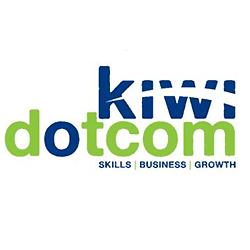
Increasing Retention and Graduation in a PTE Learning Environment
Status
Completed: 14 September 2011
Project Details
A project completed in 2011, undertaken by Kiwidotcom, to investigate the causes of learners withdrawing or not completing courses of study in a Northland PTE and to identify those current practices which are working effectively in keeping at least 60% of learners engaged to completion.
Aims:
The main aims of the project were to:
- identify the main reasons for non-completion of chosen courses of study
- investigate the strategies and initiatives that keep students involved to completion
- investigate how these successful strategies can be extended to encourage those early finishers to complete.
Methodology:
The project used a mixed methods approach involving:
- a review of the literature
- analysis of statistics and student retention records
- interviews with past and current students by phone or face-to-face.
Team

Christine Snelling
Project Leader
KiwidotcomDr Jo Mane
Researcher
Status
Funding
$10,000.00 (excl GST)
Key Findings
The key findings from the project included:
- The main body of learners studying at Kiwidotcom fitted into the general grouping of ‘second chance learners’ who seek both long-term and ‘just in time’ learning opportunities. These are important factors in analysing the reasons for students not completing their chosen courses of study. In addition, geographical and environmental factors also play their part.
- This study found that the main elements impacting on retention and graduation of its students were: family situations and unplanned events – personal situations impacted on learners heavily; under-estimation of the commitment required for tertiary study/workload; and a limited understanding of the multiple aspects of study support.
- There were gaps relating to the following: comprehensive technical skills support prior to programme commencement which should include workshops on study skills, study management and assignment writing etc; orientation or induction to study which involves identifying and setting clear goals; lack of easily accessible and locally available student support services; lack of awareness of where and how to access greater levels of support; and informing learners of the importance of support services and how they are used to best effect.
- Successful students had one or a combination of the following: clear end goal/s; short and long-term aspirations; engaged in working in or owning an existing business; familiar with writing tasks/assessments; high expectations of their own outcomes; learner centred tutors.
- The key strategies identified by tutors to retain their learners were: developing a strong rapport and continual dialogue with learners; using strategies and activities which both build and enhance learners confidence daily; ignoring resentment, identifying interest or need and incorporating these elements into the programme with a view to initiating attitudinal change; engaging in interview processes to understand learner attitude, aims, capabilities; facilitating ways of setting goals which are meaningful to the learner and finding context to meet those goals within their programme of study; investing time beyond the classroom with additional tutorials arranged either for groups or one to one sessions.
Key Recommendations
The key recommendations from the project include the following:
Building assessment and assignment skills | Holding study technique/writing workshops post enrolment but prior to programme start for first time enrolments to build assessment and assignment skills and to identify and discuss strategies to resolve literacy and numeracy issues.
Orient learners to study support services | Orient learners to the availability and importance of study support services (coordinate with Far North REAP who hold a tertiary support contract), so that learners are aware of the importance of planning study and seeking student support services in order to maintain their momentum and resolve issues.
Improving ‘follow-up’ time | Improving the ‘follow-up’ time by contacting learners who do not attend class immediately.
Better communication strategies | Developing better communication strategies with agencies such as Work and Income who support learners to study, so that a collaborative approach can be taken in ensuring regular attendance.
Understanding responsibilities and work-load | Ensuring a more complete and serious understanding of the responsibilities and work-load of study at enrolment interviews.
Study timelines | Advocate for set start dates without change. Where possible, study should be completed within the calendar year and not carried across semesters (this is common with TWoA programmes).
Policies and action plans | Policies and action plans which are well researched, and effectively respond to learner issues is a necessity for successful and sustainable retention and completion strategies which result in ensuring quality experiences and outcomes for learners as well as for providers and funders.
A research report prepared by Jo Mane and Christine Snelling.
(PDF, 941 KB, 39-pages).
- 16 September 2011